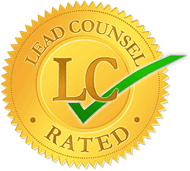If you were recently involved in some kind of accident or altercation and you’ve been suffering from back pain ever since, you may have slipped a disc. The vertebrae that make up the spine are separated by discs, which cushion the delicate bones and serve as shock absorbers.
Composed of a strong outer ring—called an annulus fibrosus—and a soft nucleus, these discs can bulge or rupture when you contort your body into an unnatural position or suffer a forceful impact. When a portion of the nucleus slips out of the torn annulus, it has nowhere to go but the spinal canal, which can irritate the nearby nerves.
Also known as a “herniated disc,” this is a relatively common injury, especially among older individuals. Because discs deteriorate over time and the ligaments holding them in place weaken, your risk of suffering slipped discs from even minor strain increases with age.
If you have a herniated disc, you might experience symptoms like:
Back pain;
Arm or leg pain;
Numbness;
Tingling; and
Muscle weakness.
Naturally, the specific symptoms—and their severity—will depend on the location and extent of the injury. If you slipped a disc in the lower back, for example, you might experience pain, numbness, or tingling that radiates from the buttocks down into the leg. This discomfort will likely affect just one side of your body and may worsen after standing, sitting, or walking for an extended period of time.
If, on the other hand, you slipped one of the discs between the cervical vertebrae, you might experience sharp or dull pain between the shoulder blades or in the neck. This pain will likely radiate down into the arms and will probably worsen when you turn your head in certain directions.
How Are Slipped Discs Treated?
According to the Mayo Clinic, most people with herniated discs can achieve relief with conservative, nonsurgical treatments. Examples include:
Limiting activities that seem to worsen the symptoms so any inflammation of the spinal nerves can decrease;
Taking nonsteroidal anti-inflammatory medication;
Receiving cortisone injections around the affected area; and
Participating in physical therapy.
Should the above treatments prove ineffective, your physician may recommend surgery. Generally speaking, it’s wise to consider surgery if your symptoms do not improve within six weeks of starting treatment.
During the procedure, your doctor will attempt to remove just the portion of the disc that is protruding. Depending on the circumstances, though, the entire disc may have to be removed, which makes for a more invasive surgery with a longer recovery period.
Discuss Your Case with a New York City Personal Injury Attorney
If you sustained a slipped disc because of someone else’s negligence, you may be entitled to compensation for all associated damages. To find out if your claim has merit, contact The Law Office of Richard M. Kenny.
Our attorneys have recovered more than $100 million for accident victims and their loved ones. Call 212-421-0300 or use our Online Contact Form to set up a free case evaluation with a personal injury lawyer in New York City.











